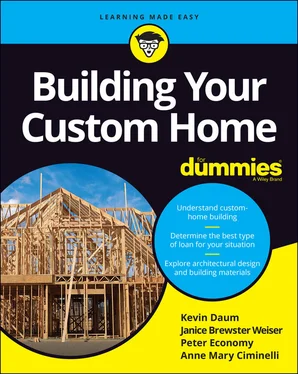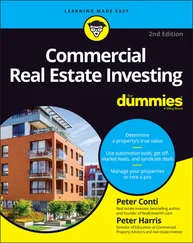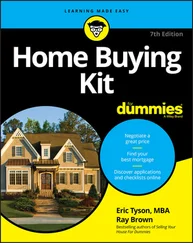Several criteria can affect the sales price of different properties both today and when your house is finished. Picking the right lot is just like picking a finished house. Factors such as location and amenities can make a lot undesirable. If a lot is undesirable to you, it may be undesirable to others as well, which can have an effect on the marketability of the property and, ultimately, the resale value. You need to consider many factors when deciding on the right location for your lot.
The following sections contain some questions to ask yourself. When answering them, take into account not only your own lifestyle, but also the factors that will impact your ability to resell the finished house. Use this checklist when searching for the right neighborhood, as well as when evaluating a prospective lot for sale.
You need to decide how you want to live in your home. These elements are a matter of personal taste. Many of the lifestyle items in the following list may be important to you and unimportant to other people:
Should the lot be in an urban, suburban, or rural area?
Should the lot be flat or sloped?
Should the lot have much usable land?
How much ongoing maintenance should the lot require?
Should the lot be in close proximity to the neighbors?
Should the lot afford privacy?
Should the lot be sunny or shady?
Should the lot have natural vegetation?
Should the lot have available on-street parking?
The list that follows includes a variety of factors that impact value; use these factors when evaluating a lot to purchase:
Is the lot on a busy street?
What kind of view does the lot have?
Does the lot have waterfront access?
What is the lot’s proximity to power lines?
Is the lot next to or near commercial buildings or apartments?
What’s the noise factor? How close is the lot to planes, trains, and automobiles?
Is the lot on or near an earthquake fault line or in a floodplain?
Are there good schools in the area?
What type of power, water, and sewer are available?
What does city planning have in mind for this neighborhood?
 You may have to sacrifice some of these factors to meet your budget. Talk to a real-estate professional to understand the market demand of a particular lot based on these issues.
You may have to sacrifice some of these factors to meet your budget. Talk to a real-estate professional to understand the market demand of a particular lot based on these issues.
Acquiring the right lot may be the biggest challenge you’ll face in the custom-home-building process. Property values have been steadily increasing in most places since World War II, and not every piece of land will suit your particular needs or be cost-effective for building. Finding the right lot isn’t easy, and you need to plan for a long hunt. Some helpful resources are available, but not as many as you may think. Finding the right lot requires sleuthing and persistence. Your best resources are the Internet, experienced real-estate agents, and your own initiative.
The Internet is a great place to start looking for your lot. The following websites are our favorite picks for discovering your dream lot:
Land.Net ( www.land.net ): This site has listings for large parcels of agricultural and residential land, as well as individual lots.
LandWatch ( www.landwatch.com ): This site has a large database of land for sale, although some of it is commercial land or raw land.
LotNetwork.com ( https://lotnetwork.com ): In addition to listing lots for sale, this site provides educational information on purchasing lots and a directory for helping sell lots you own. More information is also available on the site’s blog.
Realtor.com ( www.realtor.com ): Owned by the National Association of Realtors, this site can show you every piece of land listed in the real-estate bible, the Multiple Listing Service (MLS).
Engaging a real-estate agent/lot specialist
Finding a real-estate agent who specializes in lots can be difficult and frustrating. Most agents don’t want to spend the time with a buyer only to sell a piece of property at a fraction of the price (and a fraction of the commission) of a completed home; however, a few agents have made dealing with lots their specialty. Check to see if the real-estate agent you’re working with understands the issues associated with building, planning, and zoning that we reference in Chapter 6, as well as in this chapter. If your agent doesn’t readily answer your questions and seems unsure, if you feel like you know more about these topics from reading this book than they do, or if they brush off or blow over your questions entirely, you may want to look for someone more experienced in lot sales. If your agent seems knowledgeable in lot-only sales, they can help you assess whether any potential problems associated with building on a particular lot may surface.
 Even if you can’t find an agent who focuses on lot sales, working with an experienced real-estate agent at some point still may be in your best interest. Even though you may have to find the lot yourself, you still need help with the negotiations and transaction management. If the property is listed in the MLS, the seller is paying a commission of 5 percent to 10 percent anyway, so you may as well have an agent representing your best interest. Otherwise, the listing agent gets the entire commission just for representing the seller. (Check out Home Buying Kit For Dummies, 7th Edition, by Eric Tyson and Ray Brown [Wiley], for more info on real-estate agents and their duties and commissions structure.)
Even if you can’t find an agent who focuses on lot sales, working with an experienced real-estate agent at some point still may be in your best interest. Even though you may have to find the lot yourself, you still need help with the negotiations and transaction management. If the property is listed in the MLS, the seller is paying a commission of 5 percent to 10 percent anyway, so you may as well have an agent representing your best interest. Otherwise, the listing agent gets the entire commission just for representing the seller. (Check out Home Buying Kit For Dummies, 7th Edition, by Eric Tyson and Ray Brown [Wiley], for more info on real-estate agents and their duties and commissions structure.)
Doing the legwork on your own
If you want to find the perfect lot, you may have to do some detective work. Grab your sleuthing equipment and get started.
 If you’re looking for large tracts of custom lots, try the outlying areas of your city. Custom-home developments often advertise in the supermarket real-estate magazines, and new golf courses can make for a hotbed of lot subdivisions. Sometimes you can find the right lot simply by spending your Sundays driving through neighborhoods under development and looking for signs.
If you’re looking for large tracts of custom lots, try the outlying areas of your city. Custom-home developments often advertise in the supermarket real-estate magazines, and new golf courses can make for a hotbed of lot subdivisions. Sometimes you can find the right lot simply by spending your Sundays driving through neighborhoods under development and looking for signs.
Finding a lot when there isn’t one
If you’ve searched online, worked with an agent, and driven the neighborhoods, and you still haven’t found your dream lot for sale, you may need to take a more aggressive approach. If you find any piece of land you like, contact the owner and make an offer! It doesn’t matter that it isn’t listed for sale right now. Remember: Everything is for sale; it’s only a matter of price. Information on who owns any piece of land is part of the county public record. Through a real-estate agent, mortgage broker, or title company, you can request the address and phone number of the owner of any piece of land. If your real-estate agent is managing your part of the transaction for a commission, they should be thrilled to help you with the negotiations and the closing process.
 If you’re willing to look at many pieces of land, you can take the shotgun approach. Have your agent get you a mailing list of all the lot owners in the area and send them all personal letters explaining your burning desire to own property and build in the neighborhood. Perhaps someone will consider selling their property and, if not, they may know someone in the neighborhood who will.
If you’re willing to look at many pieces of land, you can take the shotgun approach. Have your agent get you a mailing list of all the lot owners in the area and send them all personal letters explaining your burning desire to own property and build in the neighborhood. Perhaps someone will consider selling their property and, if not, they may know someone in the neighborhood who will.
Читать дальше

 You may have to sacrifice some of these factors to meet your budget. Talk to a real-estate professional to understand the market demand of a particular lot based on these issues.
You may have to sacrifice some of these factors to meet your budget. Talk to a real-estate professional to understand the market demand of a particular lot based on these issues. Even if you can’t find an agent who focuses on lot sales, working with an experienced real-estate agent at some point still may be in your best interest. Even though you may have to find the lot yourself, you still need help with the negotiations and transaction management. If the property is listed in the MLS, the seller is paying a commission of 5 percent to 10 percent anyway, so you may as well have an agent representing your best interest. Otherwise, the listing agent gets the entire commission just for representing the seller. (Check out Home Buying Kit For Dummies, 7th Edition, by Eric Tyson and Ray Brown [Wiley], for more info on real-estate agents and their duties and commissions structure.)
Even if you can’t find an agent who focuses on lot sales, working with an experienced real-estate agent at some point still may be in your best interest. Even though you may have to find the lot yourself, you still need help with the negotiations and transaction management. If the property is listed in the MLS, the seller is paying a commission of 5 percent to 10 percent anyway, so you may as well have an agent representing your best interest. Otherwise, the listing agent gets the entire commission just for representing the seller. (Check out Home Buying Kit For Dummies, 7th Edition, by Eric Tyson and Ray Brown [Wiley], for more info on real-estate agents and their duties and commissions structure.)










